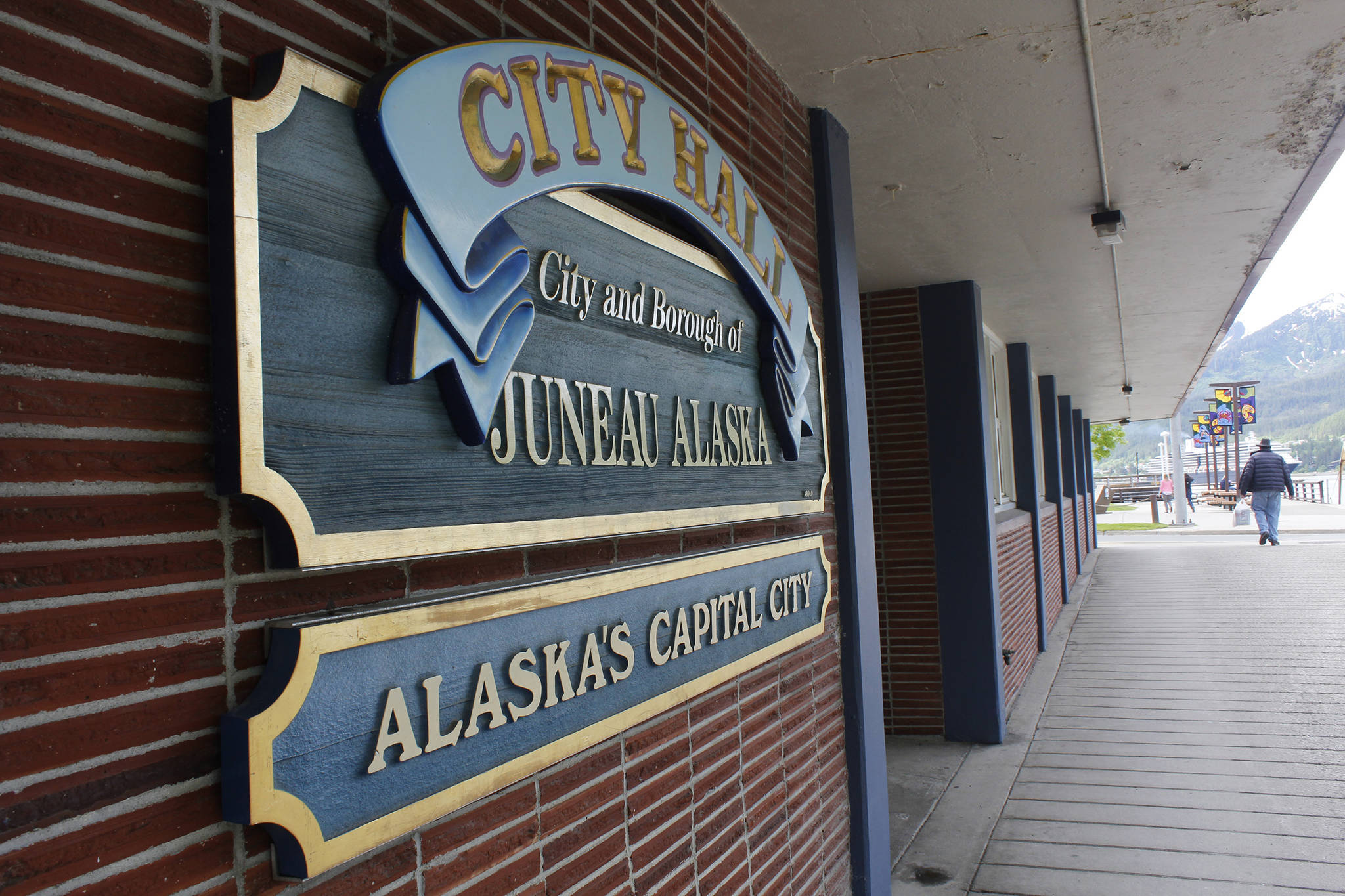The city of Juneau is trying to figure out how to adapt its budget given proposed cuts in the state budget by Gov. Mike Dunleavy.
Committee of the Whole members on Monday night discussed several local programs and projects that will be affected, including proposed renovations to Centennial Hall, the New JACC and scheduled school maintenance and repair.
Sayéik: Gastineau Community School, Dzantik’i Heeni Middle School and Riverbend Elementary School are all scheduled for roof repairs in the coming years, according to Kristin Bartlett, chief of staff for the Juneau School District.
[New estimates are in: Here’s how much it would cost to fix Centennial Hall and fund the New JACC]
Other proposed programs with ongoing costs that could be affected by funding gaps include the city’s waste management program, early childhood programs and the project to build a new city hall, according to Finance Director Bob Bartholomew.
“This requires more research,” Bartholomew said. “I can’t say with much clarity tonight,” referring to being unsure of the exact levels of funding the final state budget may provide when approved.
The largest possible variance in the city budget is caused by the low and high estimates for costs of repairing and maintaining school buildings. With state assistance, that cost is about $11 million; without state assistance, it balloons to about $46 million.
Other major capital investment projects include the proposed New JACC, renovations for Centennial Hall, a parking lot near the State Office Building and a new city hall. Low estimates for the cost of all these one-time investments could be as low as $19.5 million, according to the finance department’s projections provided by Bartholomew. High-end estimates, assuming less state support and less public donations for projects like the New JACC, could be as high as $35.5 million.
[A renovated Centennial Hall could look like one of these options]
There were a number of calculations for ways to offset the possible budget gaps, according to Bartholomew. Some are as simple as increasing the sales tax by 1 percent for four years, or reallocating parts of the current budget, both of which would generate roughly $4 million. Other potential funding sources include raising the region’s motor vehicle registration tax (MVRT), one of the lowest in the state, by between $45-$90, depending on the vehicle.
“It’s not a proposal, it’s just a calculation,” said Bartholomew, while discussing potential funding sources.
He added that this isn’t the first time Juneau’s budget has had a hole that needed balancing, referring to four-five years ago. A series of hard decisions may be ahead, said Bartholomew, but the city has made those before and come out floating.
“We still have time from introducing to passing,” said Deputy Mayor Maria Gladziszewski, but decisions need to be made or more meetings of the Committee of the Whole may be necessary. Any ordinances that they decide to introduce will need to be done by the July 22 meeting so they can be heard on Aug. 19 in a public hearing.
New JACC Ordinance
Municipal Attorney Robert Palmer III also had a number of proposals for a possible ordinance specifically to partially fund the New JACC. The current JACC, a former Alaska National Guard Armory built when the ANG was created at the adoption of statehood, has functioned as an arts center for more than a decade, but it’s aging.
According to Palmer, research by the New JACC Partnership, a nonprofit dedicated to the replacement of the old JACC, the majority of the $26.4 million construction budget will flow directly into the local economy. The $26.4 million capital cost is based on a study by the McDowell Group, a local consulting group. The New JACC is already more than 20 percent funded, standing at roughly $5.4 million, according to the Partnership for the New JACC.
Palmer wrote a number of drafts for the possible ordinance, which called for different things, including putting forth a public vote to authorize a grant; authorizing a set amount of general obligation bonds and calling for a vote; increasing the hotel-motel room rental tax from 7 to 12 percent; and amending the sales tax code to exempt transient residential rentals from the general 5 percent sales tax. All of these would require a vote before being enacted.
• Contact reporter Michael S. Lockett at 523-2271.

